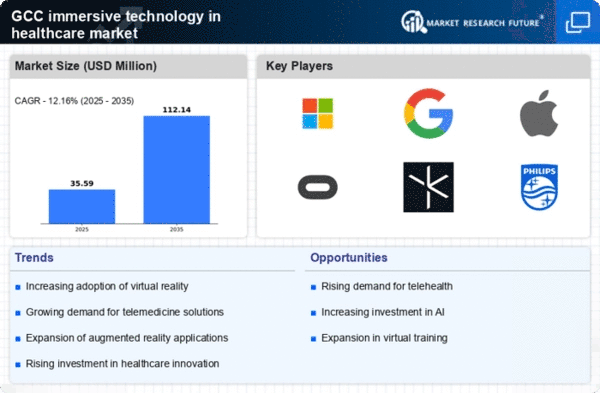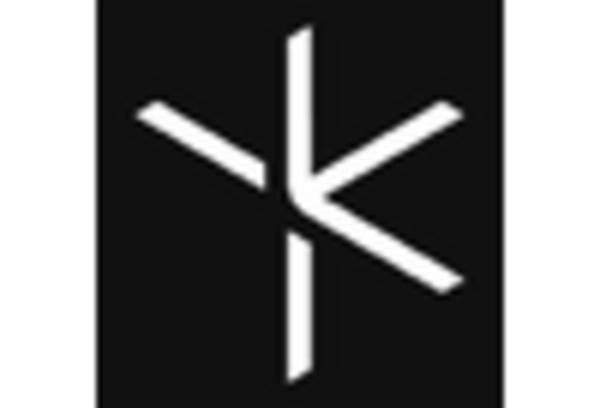Rising Awareness of Mental Health
The growing awareness of mental health issues is significantly influencing the immersive technology-in-healthcare market. As mental health becomes a priority in the GCC, there is an increasing recognition of the potential of immersive technologies in therapeutic settings. Virtual reality therapy, for instance, is being explored as a treatment for anxiety and PTSD, offering patients immersive experiences that facilitate healing. The mental health technology market is projected to grow by 25% annually, reflecting the rising demand for innovative treatment options. This trend suggests that immersive technologies could play a pivotal role in addressing mental health challenges, thereby driving growth in the immersive technology-in-healthcare market.
Technological Advancements in Healthcare
The immersive technology-in-healthcare market is experiencing a surge due to rapid technological advancements. Innovations in virtual reality (VR) and augmented reality (AR) are transforming medical training and patient care. For instance, VR simulations are being utilized for surgical training, allowing practitioners to hone their skills in a risk-free environment. The market is projected to grow at a CAGR of 30% from 2025 to 2030, driven by these advancements. Furthermore, the integration of artificial intelligence (AI) with immersive technologies enhances diagnostic accuracy and treatment planning, thereby improving patient outcomes. As healthcare providers in the GCC region adopt these technologies, the immersive technology-in-healthcare market is likely to expand significantly, reflecting a shift towards more interactive and effective healthcare solutions.
Growing Demand for Remote Patient Monitoring
The immersive technology-in-healthcare market is being propelled by the increasing demand for remote patient monitoring solutions. As healthcare systems evolve, there is a notable shift towards telemedicine and remote care, particularly in the GCC region. The market for remote monitoring devices is anticipated to reach $5 billion by 2026, indicating a robust growth trajectory. Immersive technologies, such as AR and VR, are being integrated into these solutions to enhance patient engagement and compliance. By providing immersive experiences, healthcare providers can better monitor patients' conditions and deliver personalized care. This trend is likely to drive the adoption of immersive technologies, thereby expanding the immersive technology-in-healthcare market.
Regulatory Support for Innovative Technologies
Regulatory support for innovative technologies is emerging as a key driver for the immersive technology-in-healthcare market. Governments in the GCC are increasingly recognizing the importance of fostering innovation in healthcare. Initiatives aimed at streamlining the approval process for new technologies are being implemented, which encourages the adoption of immersive solutions. For instance, the Saudi Food and Drug Authority has introduced guidelines to facilitate the use of AR and VR in medical applications. This regulatory environment not only enhances market confidence but also attracts investment in the immersive technology sector. As a result, the immersive technology-in-healthcare market is likely to benefit from this supportive framework, leading to accelerated growth.
Increased Investment in Healthcare Infrastructure
Investment in healthcare infrastructure across the GCC is a critical driver for the immersive technology-in-healthcare market. Governments are allocating substantial budgets to modernize healthcare facilities, which includes the integration of advanced technologies. For example, the UAE has committed over $10 billion to enhance its healthcare system, which encompasses the adoption of immersive technologies. This investment not only improves the quality of care but also encourages private sector participation, leading to a more competitive market landscape. As healthcare facilities upgrade their infrastructure, the demand for immersive technology solutions is expected to rise, thereby propelling the growth of the immersive technology-in-healthcare market in the region.

















